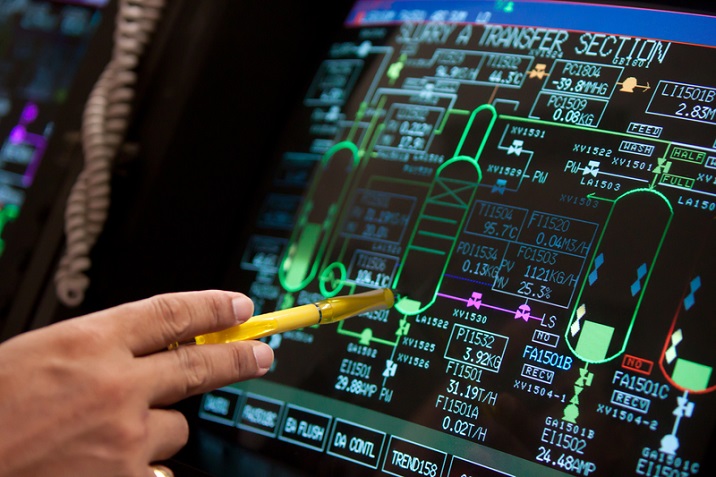Software is a great combination between artistry and engineering.– Bill Gates
Automation and Information Technology has brought sophistication in the manufacturing sector. Control systems such as robots, automated vehicles and machinery help to speed up the production.
The work stations on the shop floor, entire manufacturing enterprise, vendors, suppliers, partners and customers are linked together with the help of IT. Information Technology can integrate the automation technology with manufacturing process to bring out lean manufacturing.
Let us understand in detail how IT and Automation affects Shop Floor Management.
What is Shop Floor Automation?
Shop floor automation is defined as the introduction of using automatic equipment or systems on the shop floor. It uses control systems such as robots or automated machines to perform any task in the chain of production tasks.
What is Shop Floor Automation Infrastructure?
It is a huge collection of procedures, shop floor building(s), machinery, assembly lines, wired or wireless networks, programmable logic controllers (PLCs) and interface devices linked to each other to contribute towards shop floor automation and production.
Challenges in Shop Floor Automation
The following challenges are dominant when it comes to shop floor automation −
- Unwillingness to change − It is a major challenge in changing the shop floor because the shop floor itself is complex in nature. To connect various machines and equipment that perform specialized actions is a difficult task.
- Finding a common language − that multiple machines can share.
- Developing the protocols − to share data among various machines and equipment.
- Acquiring data from numerous devices − in real-time and compiling it into readable and actionable format.
- Massive data handling.

Merits and Demerits of Shop Floor Automation
Here are some important merits and demerits of shop floor automation −
Merits of Shop Floor Automation
Here are some of the most visible merits of shop floor automation −
- Improved Productivity − Shop floor automation enables the manufacturing enterprise to run the shop floor 24X7. This leads to significant increase in the productivity of the enterprise.
- Improved Quality − Automation eliminates errors which human beings can do. In addition, the automatic systems do not get tired hence products with uniform quality can be manufactured at different times.
- High Flexibility − Adding any new task in the production line requires training of the operator, but the robots can be pre-programmed to do any new tasks. This feature makes the manufacturing process more flexible.
- Ease of Data Collection with High Accuracy − The shop floor data can be collected easily with an automatic data collection system supported by IT. It also eases decision making by providing highly accurate, reliable, and actionable information.
- Higher Safety − The most dangerous machines on the shop floor can be automated, so that there is less threat to humans. In addition, robots also can perform the dangerous tasks instead of humans.
Demerits of Shop Floor Automation
Here are some of the most visible demerits of shop floor automation −
- High Amount of Investment − To procure machines with adequate degree of inbuilt intelligence needs high amount of capital investment. The amount of investment to train the employees to the automatic system is also high.
- Efforts of Tuning − The efforts required to tune the automatic system to the traditional processes and operations needs time and efforts depending upon the complexity of the shop floor operations and the range of variables required to be measured.
IT Solutions for Shop Floor
The shop floor IT endeavors to connect machines, people, and information together. It facilitates excellent control over communication and processes in the manufacturing environment.
IT helps to fetch real time information from the processes and arranges in a readable format. This information is vital for taking corrective actions, making accurate decisions, and providing satisfactory products to the customers. Thus, IT can turn a manufacturing business into an e-business.
There are many shop floor/factory management tools available in the market today. Some of the most popular IT solutions for shop floor management are listed below.
Oracle Shop Floor Management (OSFM)
It is a web-based solution designed to meet the manufacturing requirements. It can let the user configure the solution as per their requirements. It can allow a user to set alarms, track the production process and schedule the shop floor operations. It provides transaction of operations and inventory at each step. It records information generated on the shop floor in a 24x7 environment.
Ultriva Lean Factory Management
It is a cloud-based application capable of optimizing production sequence management and replenishment management of material. It shows real time machine availability, quality, and performance, operator efficiency and man-hours, as well as the number of unit products planned versus completed.

LinkinSoft Industrial Solutions
These solutions are intended to calculate cost of every production exactly and minimize the expenditure on raw material and labor costs. It caters almost all phases of shop floor operations right from purchasing material up to delivery of products. It enables users to monitor the status of each production line at every time.

Comments
Post a Comment